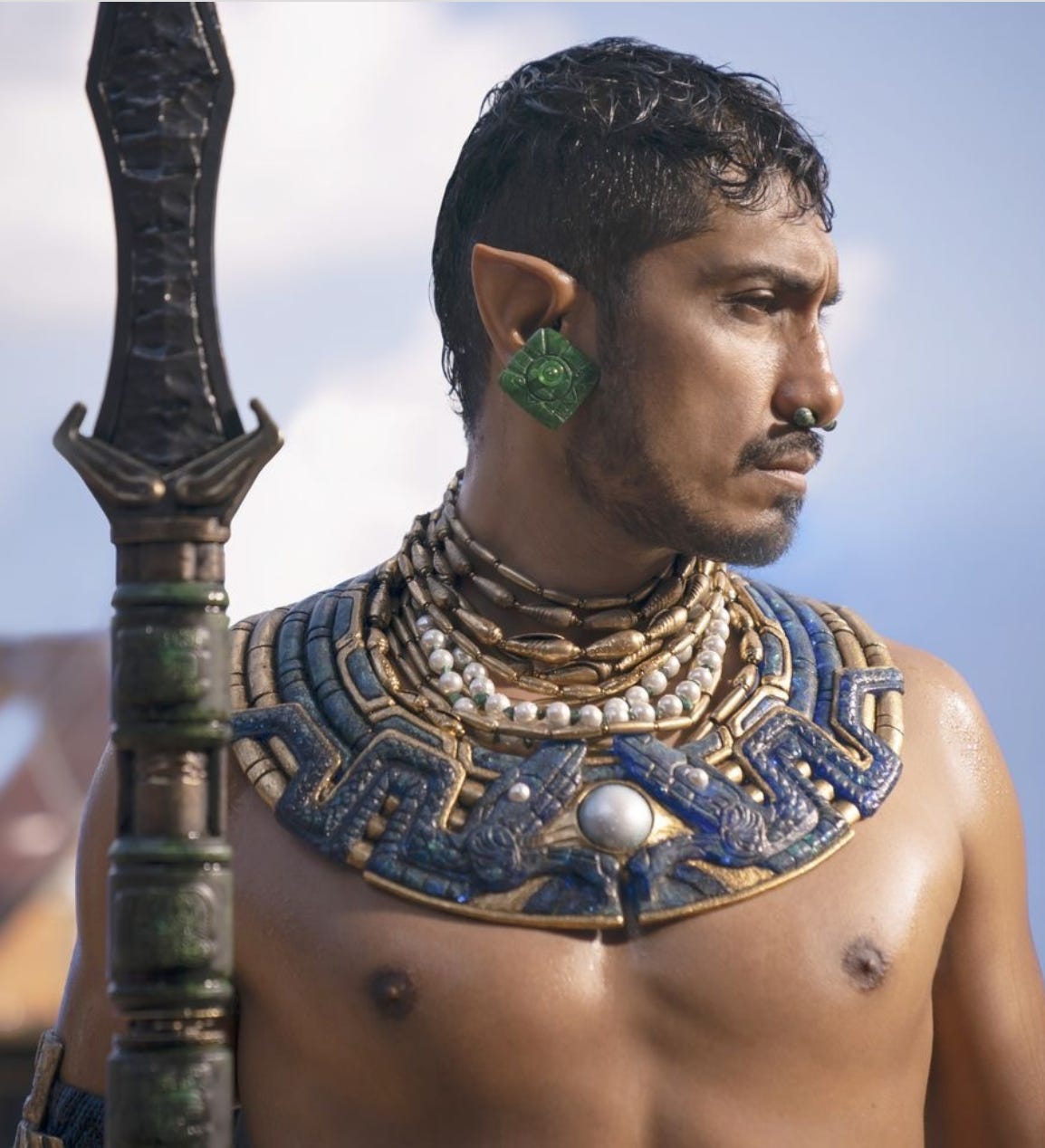Wakanda Forever Doesn’t Want Grief to Lead to Revolution
The film is a mess in both its tone and its politics.
The original Black Panther was perhaps the MCU’s most focused film. The sprawling epic was anchored in a triumphant, optimistic Afrofuturism that celebrated Black power and Black culture as much through casting and creative process as through the onscreen realization of Wakanda. The movie certainly had flaws—lots of left critics have pointed out that the heroic white CIA agent was a misstep. But it’s hard to argue with its energy or its determined insistence that the superhero genre is best when it’s the story of Black resistance rather than of white colonization.
The original was so self-contained and singular it was inevitable that the sequel would struggle to match it. Chadwick Boseman’s tragic death compounds the problems. Wakanda Forever tries to be a tribute and a recapitulation and a cog in the ever-grinding Marvel machine. The result is sometimes moving and intermittently watchable. But it’s a also a mess—not least in its politics.
The movie starts with news of T’Challa/The Black Panther’s death of a rare illness, art recapitulating Boseman’s own passing. There’s a wonderful, joyful funeral scene, mingling sadness and celebration. And throughout the movie, T’Challa’s relatives, who are also his colleagues in real life, all try to grapple with his loss.
The MCU isn’t really set up to deliver a meditation on loss, though. People come to these films to see CGI fight scenes, things blowing up, and the occasional quip. Wakanda Forever doesn’t want to disappoint, which means that memories of Boseman are quickly buried in pointless car chases, Julia Louis-Dreyfuss spouting cute, horny one-liners and lots of new character introductions transparently setting up the next step in the franchise. The chills and thrills pale in comparison to the tonal whiplash.
And then there’s the plot. Following Wakanda’s dramatic entrance onto the world stage at the end of the first film, countries across the world, especially the US, are desperately trying to secure Vibranium, the magic superscience metal found only in the once reclusive nation. The US unexpectedly finds the metal underwater, disturbing the aquatic kingdom of Talokan, a Mayan-legacy realm led by superpowered king Namor (Tenoch Huerta Mejia).
The Talokans were driven underwater by European colonizers and enslavers, so they respond to this further incursion with understandable anger and mistrust. They try to recruit Wakanda to join them in conquering the surface world. Wakandan Queen Ramonda (Angela Bassett) refuses. Cue conflict.
Black Panther fans will recognize this plot because it’s the same as the one in the first film. Once again, Wakanda has to choose between arguably justifiable revolutionary violence against the imperial white exploiters and more peaceful engagement in which cheeks are turned and nothing really changes. Once again Wakanda embraces the nothing really changing. And once again, you get 150 odd minutes of people of color, the victims of colonial violence, beating the crap out of each other to determine whether or not it’s okay to maybe at some point go beat the crap out of white people.
I’m not arguing that the MCU should advocate for global mass murder of white people. Like most people, I am against global mass murder. But this is the second film in the series that attempts to engage with issues of colonialism and global racism, and then spends almost the entire run time (a) insisting that a violent response to violent global colonialism is immoral and (b) showing colonized people hitting each other. When there are a couple scenes of Namor murdering white antagonists, it’s supposed to solidify his bad guy bona fides. Compare The Woman King, or even Django Unchained, in which enslaved people rise up against their oppressors and it's framed as catharsis, not as a sign that the enslaved people are bad guys who need to be reined in by some Black superpower.
And what about, Avengers: Endgame? In that movie, Tony Stark commits what sure looks like genocide, destroying an entire army and even an entire race, and it’s considered a heroic triumph because the people killed are the oppressors. Why is Tony justified in eliminating his colonizers, but Namor isn’t justified in eliminating his? Could it have something to do with Tony being white?
The MCU is the MCU and Disney is Disney; there are hard limits on how radical their films are going to be. Even so, though, it’s striking to see a movie powerfully evoke Black grief, only to displace the blame for said grief onto other people of color or, alternately, exhort viewers not to allow their grief to lead them to revolutionary conclusions. By the end, “Wakanda Forever!” starts to sound like, “The Status Quo, Forever!” That’s a much less inspirational cry.


